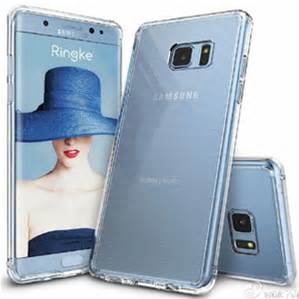What Is A Smartphone?!
What is a Smartphone Anyway?!Ok, so we've had a good discussion about why smartphone selection was historically poor in the prepaid space, and why it will continue to increase (if you missed it, head over to Prepaid Smartphones). But now the question is: "What makes a smartphone smart?" There's actually no industry standard definition of a smartphone, and people's perception of what it is changes over time as technology evolves. For example, a phone with a calendar, contacts, and email used to be considered a smartphone (believe it or not!), however, these features are now commonly found on relatively low end feature phones. Here are some features that many people believe help to define a what is a smartphone:
- Operation
System - The operation system of smartphones is more
sophisticated, typically allowing for a high degree of customizable
options and settings (though it's arguable that the iPhone is not
tremendously
customizable). It's also usually open to software
developers,
and allows installation of third party games and applications.
Some examples include: Google
Android OS, Apple
iOS, BlackBerry OS (now extinct), Palm WebOS (now extinct), Windows
Phone,
Symbian (now virtually extinct), and
Linux.

- Keyboard - Data entry is an important element of smartphones. They'll typically have a QWERTY keyboard, whether a physical or virtual (i.e. on-screen) keyboard.
- Internet Access - While most regular phones offer some type of Web access, smartphones have a much richer browsing experience. While they don't always have to have a full HTML browser, what you can view is far superior to a regular WAP (Wireless Application Protocol) phone.
Email & IM - Although even many "normal" phones can access email, and even do Instant Messaging, smartphones have a much richer experience, mirroring closer to what you would find on your personal computer. As screen resolution and size continue continued to improve/increase, the reading experience has become truly pleasurable.
- WiFi- Where it used to be a feature found only a certain phones, and some carriers proactively opted not to have it, WiFi has long since become part of a phone's core functionality. At first wireless providers resisted included WiFi on their smartphones, thinking that it would mean that customers wouldn't be so attached to their services and network. However, as data usage became so high, they realized that offloading data to WiFi networks would help to reduce costs, as well as improve the customer experience with generally faster speeds. In particular, I find it useful when I'm traveling abroad and don't want to pay for data roaming. I can still use WiFi to access email, Internet, Google Maps, etc. It's also said to improve battery life compared to using a 3G or 4G network, however, I have yet to notice or test this claim. They now even offload voice calls using "WiFi Calling".
- Large Screen- This probably seems pretty obvious, but it has to be noted for completeness. Smartphones will always have a larger than normal screen. Though note that screen size can vary largely. Interestingly, the original iPhones with 3.5" screens were considered enormous, while now 4" screens are seen as being quite small. The Galaxy Note has such a large screen that a new class was created for it: the "Phablet"; i.e. a cross between a Phone and a Tablet!
 The Bottom Line!
The Bottom Line!When all is said and done, all of these details about what is a smartphone are to say that smartphones are exciting, fun, and available on a prepaid, no-contract basis! Over time we've seen the selection of prepaid smartphones increase to the point of being on par with postpaid. The limits are really boundless! Interestingly, the latest generation of youth likely doesn't even know what a non-smartphone is, for they've grown up solely on iPhones and Android devices! Check out the Mobile Hospot page to learn about a fantastic mobile broadband option, or learn how to turn your phone into a mobile hotspot with a Tethering add-on!
Home
›
Prepaid Smartphones
›
What Is A Smartphone?
| Be Heard! Let prepaid wireless providers know what you want; fill out the survey now. |



Comments
Have your say about what you just read! Leave a comment in the box below.